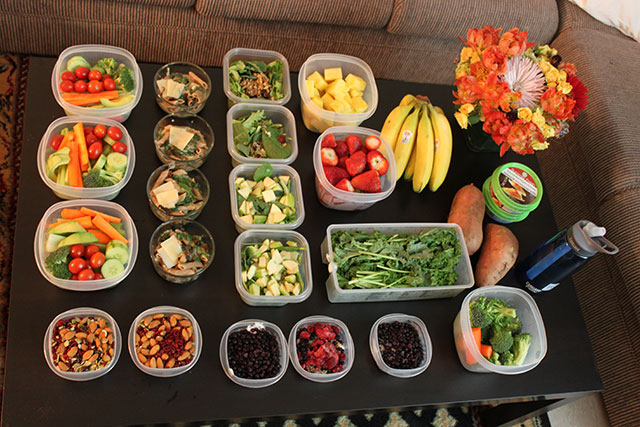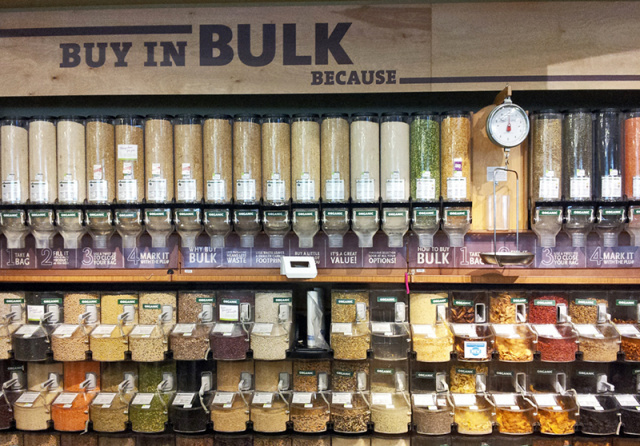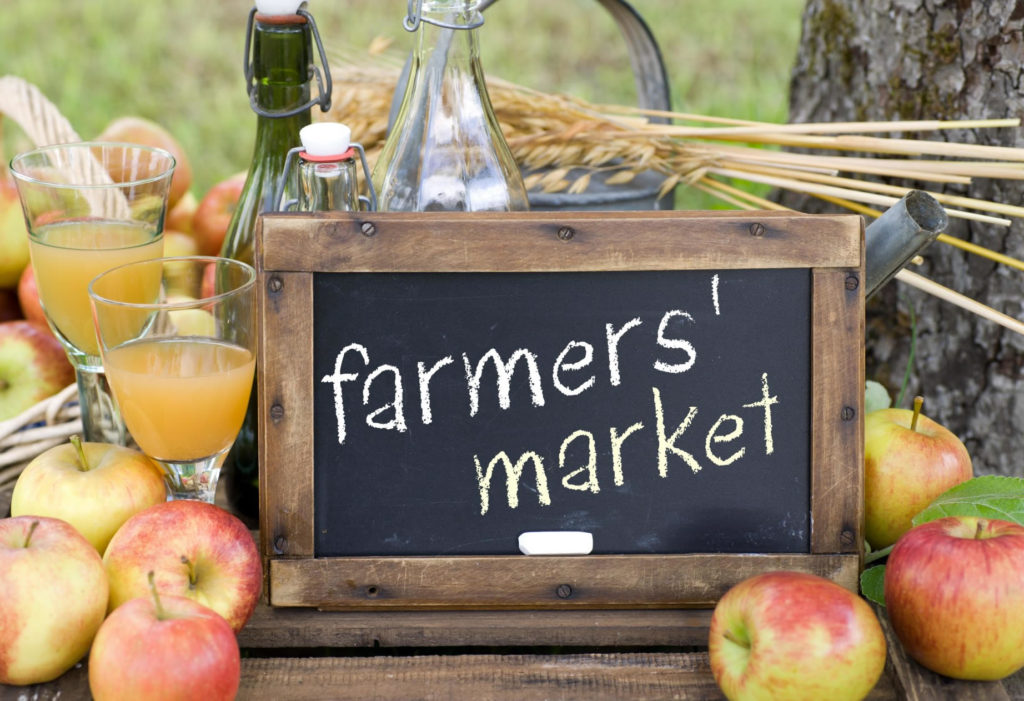Five Ways to Save Money While Eating Healthy
We all know that we need to eat better–lots of fruits and veggies, less processed foods and sugar, and the list can go on and on. But anyone that’s made a serious attempt at leading a healthy food lifestyle can quickly run into a problem… it can be expensive! It’s a bit of an odd predicament; after all, eating healthier and cooking your own meals is supposed to be cheaper than eating out, but nothing can really beat the Dollar Menus, especially in a money-tight college student’s eyes.
But eating healthy can be far more affordable than is seems at first glance. You just have to make sure you’re looking in the right places for the right deals, and soon enough you’ll be eating healthy, wholesome meals every day of the week. Here are some tips to get you started on your food journey:
Always, Always Check Sales

This should be a no-brainer, especially since sales are the key to saving money on anything, but many tend to forget to keep track of sales when they’re first stocking up on healthy foods… and that’s what really racks up the grocery bill! Keeping a track of the sales of your local grocery and health stores sales and limiting purchases to sale items as much as possible is the biggest way to save on any type of grocery bill, let alone a healthy one!
Also, though, make sure to look at sales beyond groceries! For example, places like CVS sell gallons of good quality milk, and there are sales on it from time to time, something that doesn’t happen often at a typical grocery store. But, of course, make sure to keep distance in mind–if you have to drive twenty miles to save 10 cents on a can of tuna, it may not be worth it.
Make Sure To Buy In Season

Everyone knows that certain fruits and vegetables are grown during certain times of the year, but obviously most grocery stores will sell most produce year round. However, there are many advantages to buying produce in season. For one, the produce generally tastes better when grown in season than out. But, considering this is a money saving article, there are money saving advantages to buying in season, too! Since produce grown in season is simply easier to grow, it tends to both be cheaper and in higher quantites, which leads to more sales on the items.
There are plenty of resources to see when certain produce is in season. Here’s an easy to check website of what produce is in season in your area..
If You Buy In Bulk, Make Sure You’ll Use It
Places like Costco and Sam’s Club are super popular for a reason–buying in bulk saves a lot of money in the long run! However, there is a pitfall to buying in bulk… namely, not being able to use all of the food before it goes bad. If you buy 5lbs of spinach for the price of 1lb, it may seem like a great deal… until you only use a tenth of the package before the rest of it wilts away. It might seem more expensive to buy smaller quantities of goods, but if you’re cooking all of your food before it goes bad, then you’re not wasting food, and by extension, money.
For non perishable foods, buying in bulk is far more understandable, provided you have the room for it in your household. Just make sure not to stock up on 50 cans of corn and not have room for anything else you need!
Meal Planning Is Your Friend

You might be thinking “yeah, these tips are all well and good, but what do I do if I suddenly need meat to cook? How do I save money then?” Well, the answer is to think ahead, and meal plan! Meal planning has a load of benefits, such as making your work weeks easier when you don’t need to think about what to cook, but they also have a ton in value in saving you money. If you plan ahead your meals for the week, you can go to the grocery store and get just the items you need–not the things you think you’ll need, or stuff you want.
It helps a lot to cut down on food waste, or forgetting/not having a certain ingredient when it comes time to cook. And, if you plan your recipes around the sales of the week, you’ll both save money on buying only what you need, on the cheap! And finally, making sure that you know what you’re going to make (and maybe even cooking it in advance on a day off) helps to stave off the question of “what am I going to eat for dinner?” and the answer end up being a no fuss fast food meal.
Also, don’t forget to check out meal planning apps for extra help. Look for apps like Paprika, PepperPlate and BigOven for great ideas for future recipes.
Don’t Forget Local Options
Going to the big chain grocery stores is all well and good, but if you’re looking for cheap or specialty items (especially produce), your best bet is going to be hitting up some of the local options in your area! The most common local option is going to be your local farmers’ market, and is one of the best ways to get cheap, fresh produce. You might even see some items you wouldn’t normally see in a supermarket!
Additionally, there tends to be at least a few ethnic food stores in town that has a good deal of hidden gems, if you’re willing to look. For example, my nearby Asian food store has the best deals on most spices in town, and also carries a bunch of items that I would otherwise have to pay a premium on Amazon for. Likewise, there is an Indian mart in my town that has some of the best herbs you can find, and they are a steal in terms of value. don’t be afraid to search around and ask people for suggestions–you might find some really good stuff!














